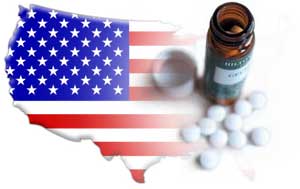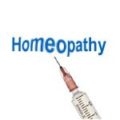I received many queries about how one can practice homeopathic medicine in US if he or she relocates or migrates to USA. Practitioners of homeopathy have varied backgrounds and credentials. Currently, there are no uniform licensing or professional standards for the practice of homeopathy in the United States.
The licensing of homeopaths varies from state to state.
Licensure as a homeopathic physician is available only to medical doctors (M.D.) and doctors of osteopathy (D.O.) in Arizona, Connecticut, and Nevada.
Arizona and Nevada also recognize, through certification or registration, homeopathic assistants who are allowed to perform medical services under the direction of a homeopathic physician.
Some states explicitly include homeopathy within the scopes of practice of other professions such as naturopathy, chiropractic, veterinary medicine, physical therapy, dentistry, and nursing.
For naturopathic physicians, a naturopathic license includes homeopathy within the scope of practice in Arizona, California, Connecticut, District of Columbia, Idaho, Kansas, Maine, Minnesota, Montana, New Hampshire, Oregon, Utah, Vermont, and Washington.
For acupuncturists, homeopathic medicine is included in the scope of practice in Arkansas, Florida, and New Mexico.
In Florida, the chiropractor scope of practice includes homeopathy.
A handful of states, including California, Rhode Island, and Minnesota, give unlicensed health care practitioners the freedom to engage in “complementary and alternative health care practices” in the state. This could involve homeopathy.
Depending on the particular state law, such practitioners are required to disclose their training and qualifications to their clients and not represent themselves as a doctor or physician.
STATES LICENSING HOMEOPATHIC PHYSICIANS
Connecticut
Connecticut defines a “homeopathic physician” as a physician who prescribes the single remedy in the minimum dose in potentized form, selected from the law of similars (CGS § 20-12n(a)).
In order to be eligible for a Connecticut homeopathic physician license, an applicant must hold a current Connecticut physician/surgeon license and must have:
1. graduated with an M.D. or D.O. degree from a medical school accredited by the Liaison Committee on Medical Education or the American Osteopathic Association (AOA); and
2. completed at least two years of progressive, post-graduate medical training as a resident physician in a program accredited by the Accreditation Council for Graduate Medical Education or the AOA (CGS § 20-12n(b)).
Also, the license applicant must complete one of the following:
1. at least 120 hours of post-graduate medical training in homeopathy at an institution approved by the Connecticut Homeopathic Medical Examining Board or the American Institute of Homeopathy; or
2. 120 hours of post-graduate medical training in homeopathy under the direct supervision of a licensed homeopathic physician which must include at least 30 hours of theory and 90 hours of clinical training; the Connecticut Homeopathic Medical Examining Board must approve any training completed under the direction of a licensed homeopathic physician (CGS §§ 20-8; 20-12n(c)).
In addition, a license applicant must successfully complete one of the following examinations:
- United States Medical Licensing Examination,
- National Board of Medical Examiners,
- Federation Licensing Examination,
- National Board of Osteopathic Examiners
The examination is required to become registered as a licentiate of the Medical Council of Canada, or an acceptable combination of these (CGS §§ 20-10, 20-12n(c)).
Applicants found eligible must then successfully complete an examination in homeopathic medicine administered by Department of Public Health (DPH). This examination is based principally upon classical homeopathy and has two parts:
(1) foundations of homeopathy (history, philosophy and principles, remedies and their preparation) and
(2) practice of homeopathy.
Arizona
The Arizona Board of Homeopathic and Integrated Medicine Examiners examines, licenses, and regulates homeopathic physicians.
The board also registers homeopathic medical assistants that work under the supervision of licensed homeopathic physicians (Arizona Revised Statutes (ARS) § 32-2904).
State law defines homeopathy as “a system of medicine that employs homeopathic medication in accordance with the principle that a substance that produces symptoms in a healthy person can cure those symptoms in an ill person” (ARS § 32-2901 12).
An applicant for a homeopathic physician license must
(1) have a degree from an approved medical school or have a medical education that the board determines is of equivalent quality and
(2) hold a license in good standing to practice medicine or osteopathic medicine issued by Arizona or by another state, district or territory of the United States (ARS § 32-2912).
The applicant must also have a diploma or certificate conferring the degree of doctor of medicine in homeopathy from a homeopathic college or any other educational institution approved by the board or documentation of successful completion of preceptorships or formal postgraduate courses approved by the board (ARS § 32-2912). A “preceptorship” is an extended period of individual study with one or more experienced homeopathic physicians or institutions (ARS § 32-2901 23).
An applicant without a doctor of homeopathy degree must document completion of at least 300 hours of formal postgraduate education in one or more of specified treatment modalities with at least 40 hours in a course of classical homeopathy.
“Classical homeopathy” means a system of medical practice that treats disease by administering minute doses of a remedy that would produce in healthy persons symptoms of the disease presented (Board Rules §§ R4-38-101, 103).
Instead of formal postgraduate courses, an applicant can qualify for licensure based on completion of a preceptorship conducted by a preceptor qualified to provide instruction in one or more specified treatment modalities. The applicant must submit a notarized affidavit from each preceptor attesting to the preceptor’s educational qualifications, the dates of the instruction, an outline of the training conducted and the treatment modalities involved, the number of hours of didactic and clinical training in each modality, and the general nature of the services performed during the training (R4-38-104).
A license applicant must also pass a board-prescribed exam. The exam must include all subjects generally accepted as necessary for a thorough knowledge of the practice of medicine as a homeopathic physician (ARS § 32-2913). The exam has three parts—a written exam, an oral exam, and a personal interview with the board (R4-88-106).
Nevada
The Nevada Board of Homeopathic Medical Examiners is charged with regulating the practice of homeopathic medicine in the state, including determining the qualifications of, and examining, applicants for licensure as homeopathic physicians.
A homeopathic physician in Nevada must have thorough knowledge of homeopathic medicine and may integrate into his or her practice the following:
noninvasive electrodiagnosis,
cell therapy,
neural therapy,
herbal therapy,
neuromuscular integration,
orthomolecular therapy, and
nutrition.
These are defined in the Nevada Administrative Code (NAC), §§ 630A.014 through 630A.023 .
A license applicant must:
1. have received an M.D. or D.O. degree;
2. be licensed to practice allopathic or osteopathic medicine in any state or country, the District of Columbia, or a territory or possession of the United States;
3. complete one year of postgraduate training in allopathic or osteopathic medicine approved by the board;
4. receive six months of post-graduate training in homeopathy;
5. pass all oral or written examinations required by the board; and
6. meet any additional requirements established by the board (Nevada Revised Statutes (NRS) §§ 630A.230; 240).
The applicant’s M.D. degree must be from a medical school accredited by the Liaison Committee on Medical education or the Committee for the Accreditation of Canadian Medical Schools. The D.O. degree must be from an osteopathic school accredited by the Bureau of Professional Education of the American Osteopathic Association (NRS § 630A.240).
The required six months of post-graduate training in homeopathy must consist of courses, instructors, or programs approved by the board. The board, in determining whether to approve a course or program, must consider:
1. the textbooks and other instructional aids used in the course or program,
2. the institution offering the course or program,
3. the qualifications of the instructor teaching the course or program, and
4. whether the course or program includes instruction on:
a. certain diagnostic and therapeutic principles,
b. the procedure for evaluating a patient,
c. the procedure for selecting an appropriate treatment based upon the evaluation of the patient,
d. homeopathic pharmacology, and
e. the methodology of prescribing homeopathic medicines and therapies (NAC § 630A.072).
A homeopathic physician who is actively practicing in Nevada and in good standing with the board may serve as a supervisor of person in the required post-graduate training (NAC § 630A.076).
Nevada also certifies “advanced practitioners of homeopathy” and “homeopathic assistants” (NRS §§ 630A.293 through 299).
UNLICENSED COMPLEMENTARY AND ALTERNATIVE HEALTH CARE PRACTITIONERS
Minnesota
Minnesota does not license homeopathic physicians.
State law recognizes a category of practitioner known as an “unlicensed complementary and alternative health care practitioner.”
This is a person who either
(1) is not licensed or registered by a health-related licensing board or the commissioner of health or
(2) is licensed or registered by the health commissioner or a health-related board other than the medical practice, dentistry, chiropractic, or podiatric boards, but does not hold oneself out to the public as licensed or registered by the commissioner or a health-related board when engaging in complementary and alternative medicine (Minnesota Statutes § 146A.01 subd. 6).
“Complementary and alternative health care practices” means the broad domain of complementary and alternative healing methods and treatments, including but not limited to:
1. acupressure;
2. anthroposophy;
3. aroma therapy;
4. ayurveda (a holistic system of medicine from India);
5. cranial sacral therapy;
6. culturally traditional healing practices;
7. detoxification practices and therapies;
8. energetic healing;
9. polarity therapy;
10. folk practices;
11. healing practices utilizing food, food supplements, nutrients, and the physical forces of heat, cold, water, touch, and light;
12. gerson therapy (alternative dietary therapy for cancer) and colostrum therapy;
13. healing touch;
14. herbology or herbalism;
15. homeopathy;
16. nondiagnostic iridology;
17. body work, massage, and massage therapy;
18. meditation;
19. mind-body healing practices;
20. naturopathy;
21. noninvasive instrumentalities; and
22. traditional Oriental practices, such as Qi Gong energy healing.
Complementary and alternative health care practices do not include surgery, x-ray radiation, administering or dispensing legend drugs and controlled substances, practices that invade the human body by puncture of the skin, setting fractures, the use of certain medical devices, any practice included in the practice of dentistry, or the manipulation or adjustment of articulations of joints or the spine (§ 146.01 subd.4).
All unlicensed complementary and alternative health care practitioners must provide their clients with a client “bill of rights.” Among its provisions, the bill of rights must include
(1) the practitioner’s name, complementary and alternative health care title, business address, and telephone number;
(2) the practitioner’s degrees, training, experience, or other qualifications regarding the complementary and alternative health care being provided, and
(3) this statement in bold:
“THE STATE OF MINNESOTA HAS NOT ADOPTED ANY EDUCATIONAL AND TRAINING STANDARDS FOR UNLICENSED COMPLEMENTARY AND ALTERNATIVE HEALTH CARE PRACTITIONERS. THIS STATEMENT OF CREDENTIALS IS FOR INFORMATION PURPOSES ONLY. Under Minnesota law, an unlicensed complementary and alternative health care practitioner may not provide a medical diagnosis or recommend discontinuance of medically prescribed treatments. If a client desires a diagnosis from a licensed physician, chiropractor, or acupuncture practitioner, or services from a physician, chiropractor, nurse, osteopath, physical therapist, dietician, nutritionist, acupuncture practitioner, athletic trainer, or any other type of health care provider, the client may seek such services at any time.”
The client is also entitled to a brief plain language summary of the theoretical approach used by the practitioner (§ 146A.11).
The law creates the Office of Unlicensed Complementary and Alternative Health Care Practice in the Minnesota Department of Health. The office investigates complaints and takes and enforces disciplinary actions against all unlicensed complementary and alternative health care practitioners for violations of prohibited conduct. It also serves as a clearinghouse on such practices (§ 146A.02).
Rhode Island
Rhode Island’s “Unlicensed Health Care Practices” law is very similar to Minnesota’s. The definition of “unlicensed health care practices” is the same as found in the Minnesota law (Rhode Island General Laws, § 23-74-1). Also, the same “bill of rights” provisions are in the Rhode Island law (§ 23-74-14). The law is administered by the director of the Rhode Island Department of Health.
California
Like Minnesota and Rhode Island, California law provides that a person providing certain complementary and alternative health care services who makes specified written disclosures to a client is not in violation of certain provisions of the California Medical Practice Act unless that person engages in specified diagnosis, treatment, and other activities. It requires an individual who advertises him or herself as performing the services that are subject to such requirements to state in the advertisement that he or she is not licensed by the state as a healing arts practitioner (SB 577 of the 2002 Session; § 2053.5 and 2053.6 of the California Business and Professions Code).
I feel, working as a homeopathic doctor for an Indian homeopath or a non US homeopath in America is difficult and it depends on your visa status also.










